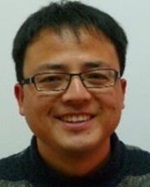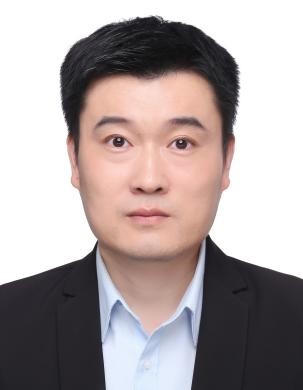
Prof. Huiqing Wen
Xi’an Jiaotong—Liverpool University, China
Bio: Huiqing Wen (Senior Member, IEEE) received the B.S. and M.S. degrees from Zhejiang University, Hangzhou, China, in 2002 and 2006, respectively, and the Ph.D. degree from the Chinese Academy of Sciences, Beijing, China, in 2009, all in electrical engineering. From 2009 to 2010, he was an Electrical Engineer with the GE (China) Research and Development Center Company, Ltd., Shanghai, China. From 2010 to 2011, he was an Engineer with the China Coal Research Institute, Beijing, China. From 2011 to 2012, he was a Postdoctoral Fellow with the Masdar Institute of Science and Technology, Abu Dhabi, UAE. Since 2013, he has been with the Department of Electrical and Electronic Engineering, Xi'an Jiaotong-Liverpool University (XJTLU), Suzhou, China, where he is currently a Professor. He has authored or coauthored more than 100 peer-reviewed technical papers in leading journals. His research interests include renewable energy, electric vehicle, power electronics, microgrid, and power semiconductor devices. His research interests include renewable energy, electric vehicle, power electronics, microgrid, and power semiconductor devices. He is a Fellow of the Institution of Engineering and Technology.

Prof. Ronggang Ni
Qingdao University, China
Speech Title: Position Sensorless
Control of PMSM Using Single Current Sampling
Abstract: In the realm of AC variable frequency drive
systems, Permanent Magnet Synchronous Machines (PMSMs) are
highly favored for their remarkable efficiency, high power
density, and uncomplicated mechanical structure. Position
sensorless control of PMSMs offers notable advantages in
enhancing reliability and reducing system cost. However, the
reliability of position sensorless control, particularly at
low speeds, is impacted by the distortion of applied voltage
and reconstruction error of phase current caused by the
unmeasurable regions when using single DC current sampling.
This report presents the state-of-the-art of phase current
reconstruction techniques using single DC current sensor
along with position sensorless control. Additionally, it
proposes the GINFORM (Generalized INdirect Flux detection by
Online Reactance Measurement) method to minimize the
negative impact of unmeasurable regions and enhance control
reliability. Furthermore, a variable carrier frequency
modulation strategy is introduced to improve the current
loop bandwidth and dynamic performance. Experimental results
are carried out to validate the effectiveness of the
proposed GINFORM method. At the end, potential trends on
PMSM control with fewer sensors are discussed.
Bio: Ronggang Ni was born in
Daqing, China in 1987. He received the B.S., M.S. and Ph.D.
degrees from Harbin Institute of Technology, Harbin, China,
in 2010, 2012 and 2017, respectively, all in electrical
engineering.
From 2015 to 2016, he was a visiting scholar at Aalborg
University, Denmark. In 2017, he was with the Shanghai STEP
Electric Corporation, Shanghai, China. From 2018, he has
been with Qingdao University, Qingdao, China, and is
currently a full professor and the vice dean of the School
of Electrical Engineering.
Prof. Ni is a senior member of IEEE, the leader of Shandong
Provincial Innovation Team on new energy transportation and
electric drive, and the Chief Expert of Qingdao Expert
Workstation on permanent magnet motor control. He served as
session chair or technical committee at ICEMS, IPEMC, CIEEC,
VPPC and ICPES, etc. He is also PI of 5 projects granted by
NSFC and Shandong Province.
Prof. Ni has authored more than 30 technical papers, and
holds 13 patents. He delivered 8 tutorials or invited
speeches on academic and industrial conferences.
His research interests include electric machine topology,
design and drive for electrified transportation and servo
systems.

Prof. Yu Wu
Northwestern Polytechnical University, China
Speech Title: Key Power Technologies
for Electric Propulsion Aircrafts
Abstract: As the global aviation industry transitions
towards sustainable development, electric propulsion
technology in aircraft with new energies has become a
central force driving this transformation. The electric
propulsion system comprises three core electronic
components: batteries, motors, and electronic controls. The
technological advancements in these components are crucial
to the performance and safety of electric aircraft. With
improvements in the energy density of batteries, the power
density of motors and controllers, as well as the
miniaturization and lightweighting of related onboard
electrical equipment, electric propulsion in general
aviation aircraft is nearly capable of meeting the demands
of the on-demand aviation market. However, this technology
still faces several challenges. This report initially
explores the strengths and weaknesses of electric propulsion
technology and the classification of electric propulsion
aircraft. It then focuses on reviewing the current research
and academic progress in the three core electronic systems
of batteries, motors, and electronic controls. The report
delves into the key technical issues and latest research
findings in these fields, discusses their specific
contributions to enhancing the performance of electric
propulsion systems, and also highlights the current
limitations of the technology and potential directions for
future research.
Bio: Wu Yu was born in Chongqing, China in 1990. In 2013, 2016 and 2020, he received the B.S., M.S. and Ph.D degrees from Northwestern Polytechnical University, Chongqing University and Université de Technologie Belfort-Montbéliard , France, respectively, all in electrical engineering. He has been working at Northwestern Polytechnical University in China since 2020, and is currently a full professor and doctoral supervisor at the College of Civil Aviation. Professor Wu is a member of the Institute of Electrical and Electronics Engineers (IEEE), a national young talent, a leading talent in innovation and entrepreneurship in Gusu, Jiangsu Province, and a member of the Shanghai Young Scientific and Technological Talents - Sailling Program. In recent years, he has presided over the National Overseas High-level Talents Project, the National Natural Science Foundation, the first/fifth aerospace Academy and other sub-projects. Published IEEE Transactions on Industrial Electronics, Journal of Power Sources, Energy Conversion and Management, IEEE Transactions on Power Electronics, more than 10 high-level papers, one English monograph, more than 10 invention patents. His research interests include efficient energy management and robust control technology of hybrid power systems, reliability and condition monitoring technology of power electronic systems, etc.

Assoc. Prof. Chenggang Cui
Shanghai University of Electric Power, China
Speech Title: Intelligent Control for
Power Electronics in DC Microgrid
Abstract: TBA
Bio: Chenggang Cui is an Associate Professor at Shanghai University of Electric Power. His primary research interests include intelligent control of power electronics and microgrids, as well as the application of artificial intelligence in power systems. Professor Cui has published over 20 papers in journals such as IEEE Transactions on Industrial Electronics, IEEE Journal of Emerging and Selected Topics in Power Electronics, IEEE Transactions on Circuits and Systems, and International Journal of Robust and Nonlinear Control. He has led several research projects, including the National Natural Science Foundation of China Youth Project, the Ministry of Housing and Urban-Rural Development Science and Technology Plan Project, projects with Zhejiang Electric Power, and projects with China Power Construction Group.
Speakers in 2025 to be announced soon......
© ICPE 2020-2025-The 6th International Conference on Power Engineering. All rights reserved.
